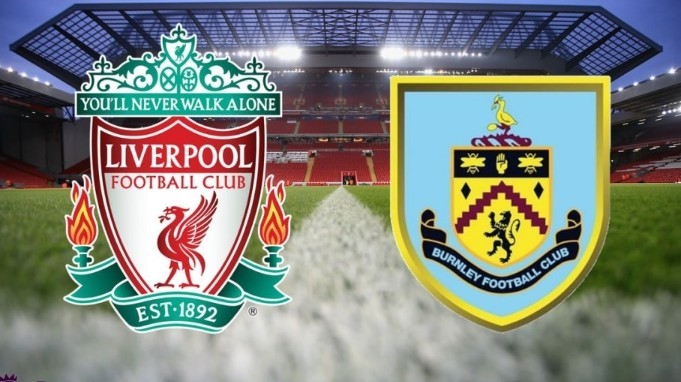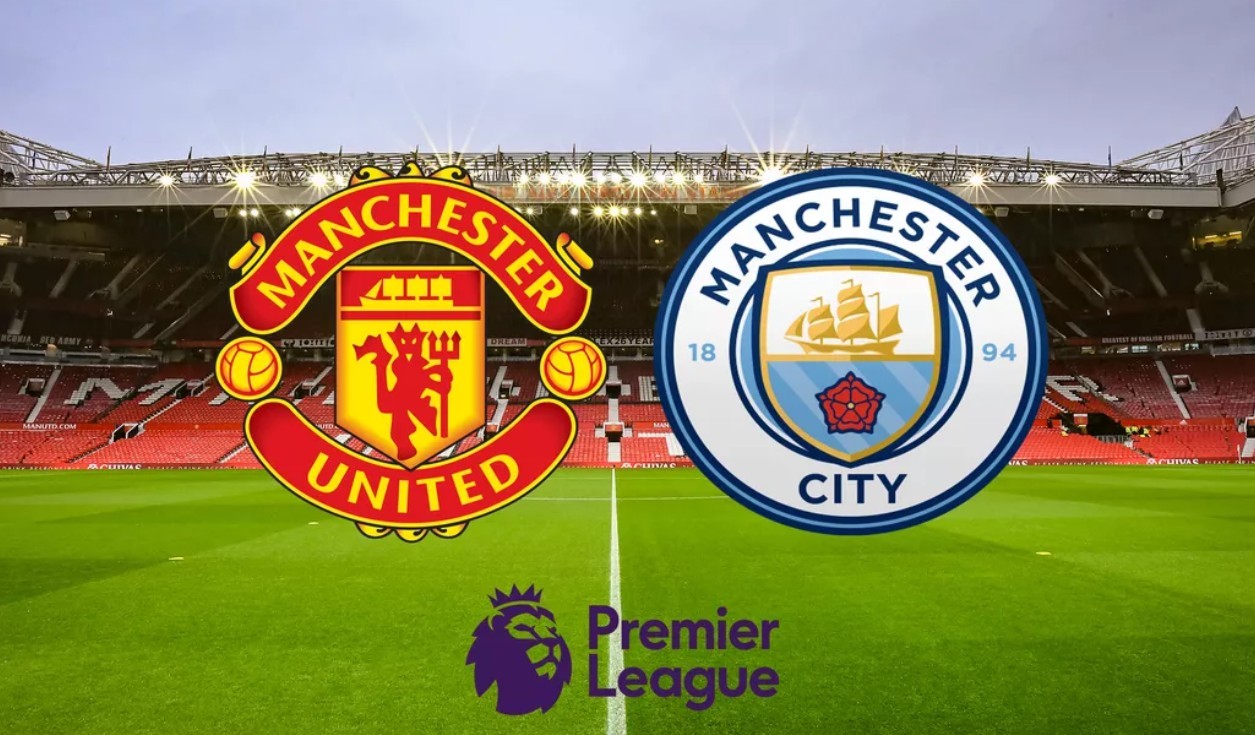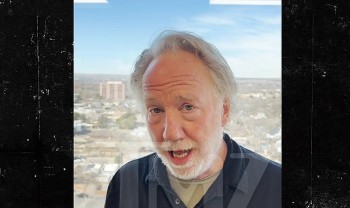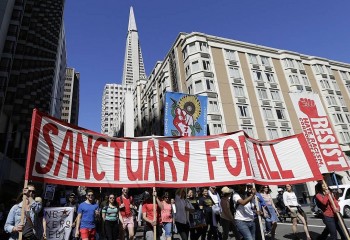Top 10 Cities With the Most Expensive Living on the Planet
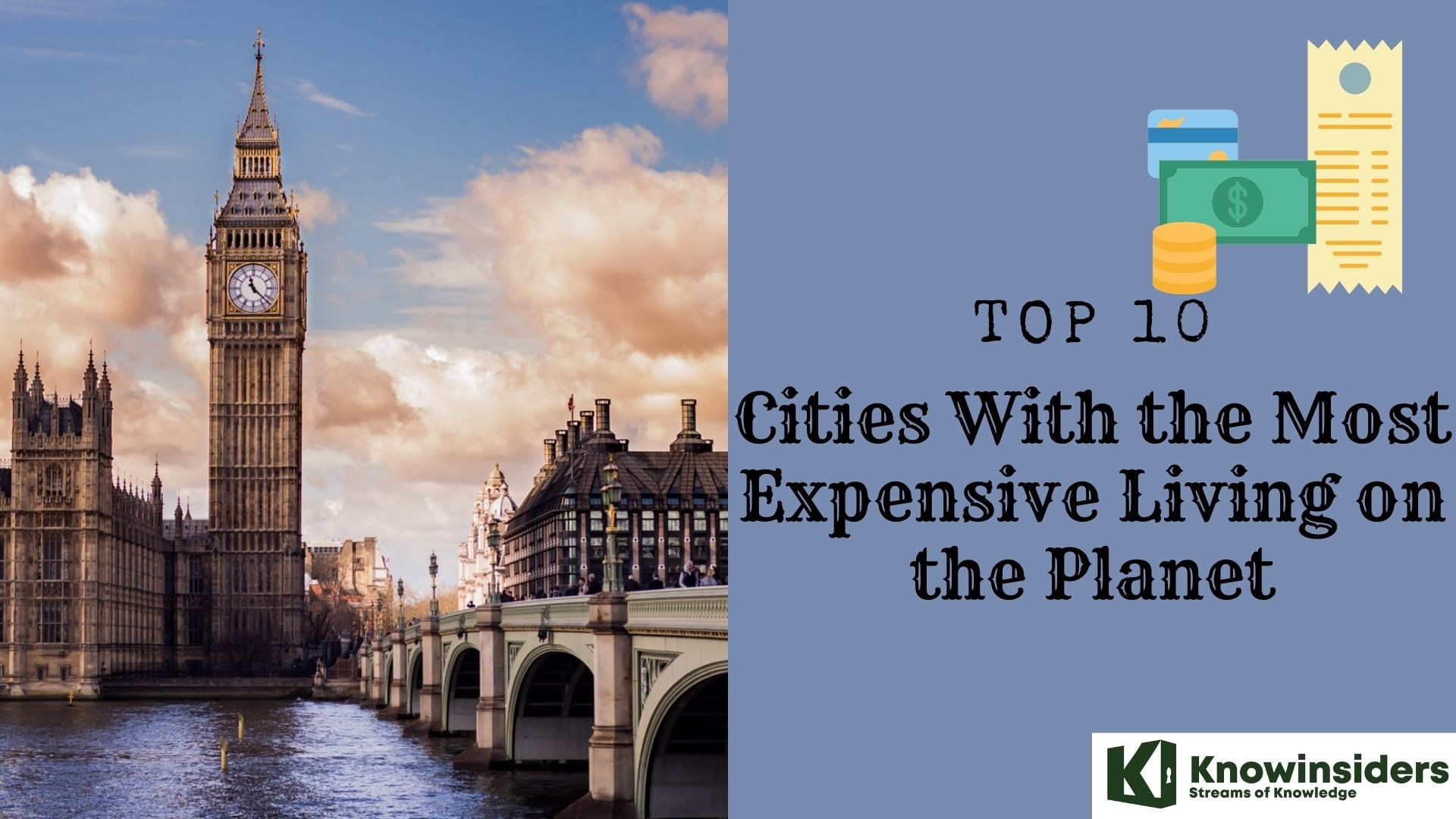 |
| Top 10 Cities With the Most Expensive Living on the Planet |
| Table of Content |
For the wealthy people who live in cities London, the higher cost of luxury items like designer handbags, shoes, watches etc, doesn't even keep with up the overall inflation rates of countries.
Here is the list 10 of the most expensive cities in the world where living comes at a high cost, according to the annual list released by the Global mobility company, ECA International.
Why You Pay Extra to Live in the City
Is it more affordable to live in a city, where you can often walk to stores, work, and public transportation but pay more for housing, or outside the city, where you might need to rely more on cars? For many people, city living often seems to be the pricier choice.
Research by the Urban Land Institute's Terwilliger Center for Housing finds that in many urban areas, including Washington, D.C., San Francisco, and Boston, working families often struggle to find affordable housing. Indeed, the price of housing often gets the most attention when it comes to measuring the cost of city living. Rent and housing prices tend to be significantly higher in urban locations. But city dwellers face other extra costs, too. Here are seven less-obvious costs of city living:
Entertainment: When you live close to the movie theaters and live entertainment such as plays and concerts, it's more tempting to pay to see them. In some cases, you can access the performing arts for free, but many city events require paid tickets.
Clothes: People who live in cities often feel more pressure to stay stylish. That means spending more on clothes, as well as shoes, which can get worn down more quickly with all of the city walking and public transportation use.
Schools and daycare: This one only applies to families with children, but paying for child care is often much more expensive in urban areas than suburban and rural ones. Families who choose to send their children to private school because they don't like their urban school districts also face expensive tuitions.
Food: In addition to the fact that produce and other fresh food can cost more at urban grocery stores, there are also more temptations for lots of daily food expenditures, from coffee to take-out to midday snacks. When you pass five cafes on your way to work, in can be hard to keep walking without stopping in for a treat.
Exercise: This cost can go both ways, because suburban and rural dwellers might spend so much time in their cars that they feel the need to buy an at-home gym or DVDs in order to squeeze in exercise time. Urbanites, on the other hand, might walk enough to stay in shape, but they also usually have easy access to gyms, and might want to join so they can exercise free from the city smog and traffic.
Parking: Only in cities do you need to rent parking spaces for $200 a month (or higher). Of course, you might be able to avoid driving altogether, but if not, you'll be forced to pay a higher price for the luxury.
Taxes and insurance: Cities often charge higher tax rates and insurance companies charge more to cover the additional risk of living in a high-population area, where your car might be more likely to be stolen and your home more likely to be broken into.
What are the most expensive cities in the world?
1. Shanghai
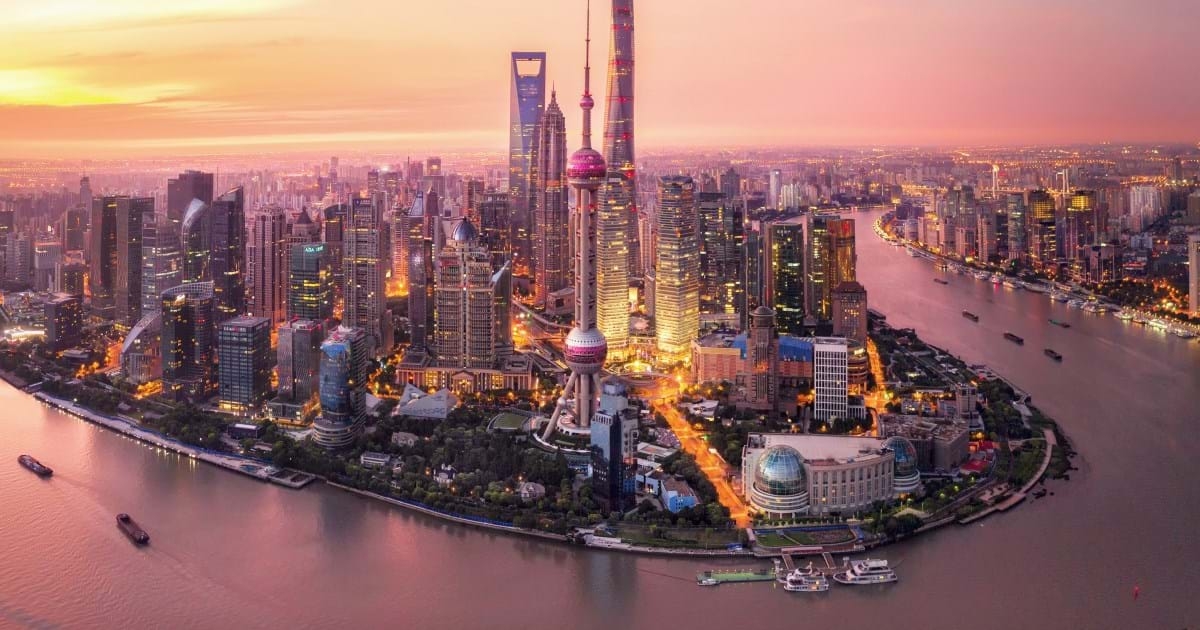 |
| Photo: Getty Images |
The cost of living in Shanghai is considered the highest in China and, according to Mercer's Cost of Living Survey, it's the 6th most expensive city out of 209 cities for expats.
Depending on an expat's budget, some will naturally opt for a more economical lifestyle in the city, while others tend to live more extravagantly than they would back home, taking advantage of Shanghai's luxuries and renowned nightlife.
Regardless of which end of the spectrum an expat ends up living on, it's good to be informed of the basic cost of living in Shanghai before arriving.
Cost of groceries and eating out in Shanghai
The great thing about buying groceries in Shanghai is that just about anything can be found in foreign supermarkets. Imported produce is more expensive, though. Buying vegetables from local vendors is often half the price of fresh produce from supermarkets, although the bigger stores may have a larger organic selection.
Expats who would like to live cheaply can follow the example set by many locals and foreign students by eating at a small mian guan or tan restaurant for dinner. Slightly more mid-range Chinese-style restaurants would usually cost more per person, while restaurants serving foreign food are often much more expensive.
Alcoholic beverages in most bars and restaurants might cost more than expats are used to, especially if they choose a more upscale venue for drinks. Although the cost of alcohol may seem daunting, frequent promotions and 'happy hours' are common in Shanghai, allowing those of all budgets a chance to indulge.
Cost of healthcare in Shanghai
The cost of healthcare in Shanghai varies dramatically. In the case of emergencies, fees at a private hospital in China would add up quite similarly to those in a Western country. As a result, medical insurance is essential.
Cost of shopping in Shanghai
Some of the best bargains in Shanghai can be found in its local markets. Spread throughout the city, these places are a great way for savvy shoppers to find deals on pearls, electronics, antiques, books and branded clothing. Quality, selection and authenticity may be lacking, but expats are often able to haggle prices down to a fraction of what they would be sold for abroad.
On the other hand, prices for luxury goods at places such as the malls on Nanjing Road are in line with those in North America and Europe.
Cost of living in Shanghai chart
Prices may vary depending on product and service provider and the list below shows average prices for June 2022.
| Accommodation (monthly rent) | |
| One-bedroom apartment in city centre | RMB 7,900 |
| One-bedroom apartment outside of city centre | RMB 4,600 |
| Three-bedroom apartment in city centre | RMB 21,400 |
| Three-bedroom apartment outside of city centre | RMB 11,300 |
| Groceries | |
| Milk (1 litre) | RMB 19 |
| Dozen eggs | RMB 16 |
| Loaf of white bread | RMB 17.40 |
| Rice (1kg) | RMB 8.70 |
| Packet of cigarettes | RMB 25 |
| Public transport | |
| City centre bus/train fare | RMB 4 |
| Taxi rate per km | RMB 3 |
| Eating out | |
| Big Mac Meal | RMB 40 |
| Coca-Cola (330ml) | RMB 4 |
| Cappuccino | RMB 30 |
| Bottle of local beer | RMB 10 |
| Three-course meal at a mid-range restaurant for two | RMB 300 |
| Utilities | |
| Uncapped ADSL internet per month | RMB 120 |
| Utilities (average per month for standard household) | RMB 470 |
2. London
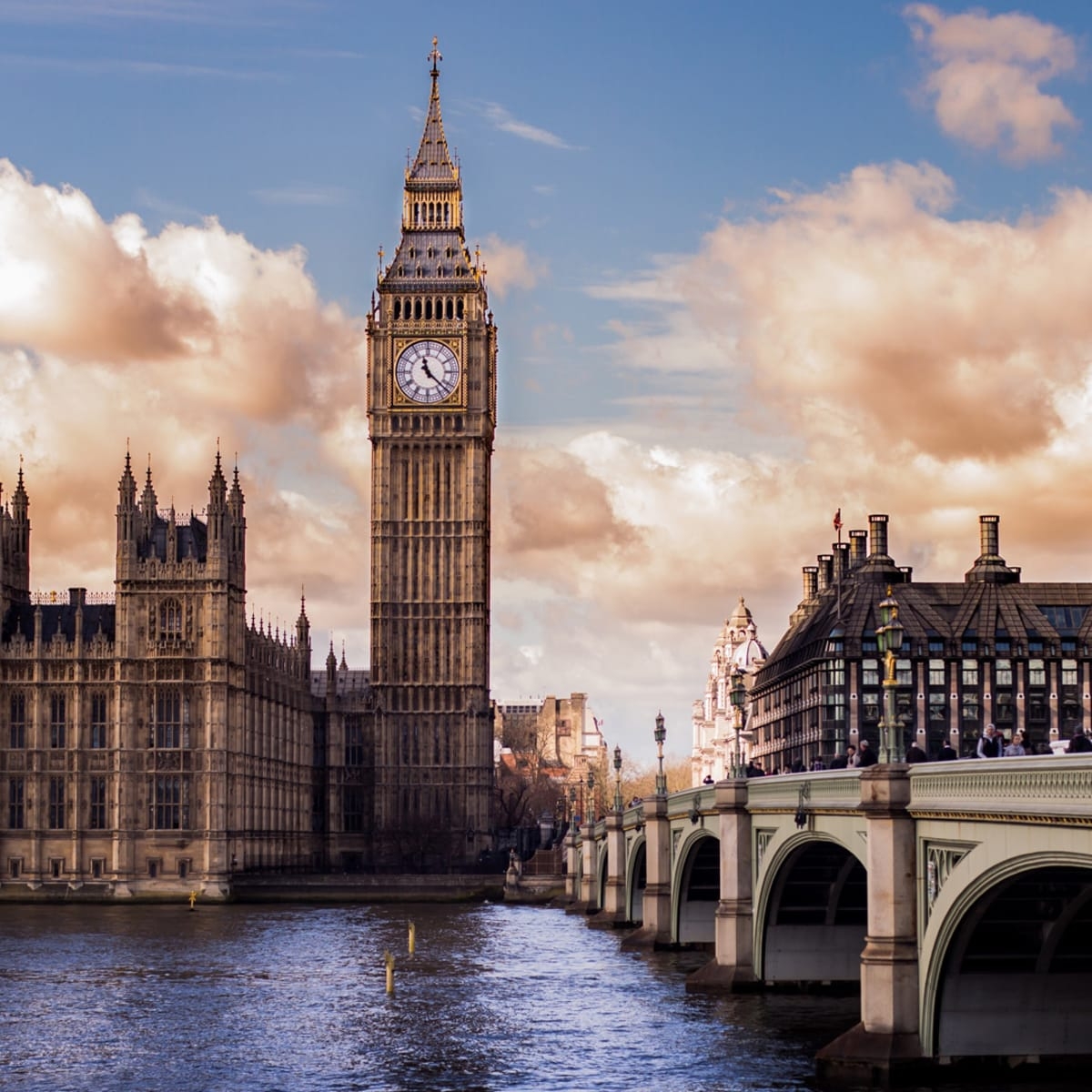 |
| Photo: Getty Images |
London, the capital of the United Kingdom took second place from Tokyo to be in the second spot of the world's most expensive cities to live in for the wealthy people.
For the wealthy people who live in cities London, the higher cost of luxury items like designer handbags, shoes, watches etc, doesn't even keep with up overall inflation rates of countries.
London is a notoriously expensive place to live – the city was ranked 18th out of 209 cities analysed in the Mercer Cost of Living Survey.
The UK capital is a city full of opportunities, but expats need to have a full understanding of the cost of living in relation to the salary they’ll be earning to ensure they budget accordingly.
Transport, although efficient, can be rather costly. Lifestyle, entertainment and shopping, however, can be tailored to accommodate various different tastes and budgets, and there are plenty of ways to save money in these areas.
Cost of accommodation in London
The majority of expats living in London tend to rent property rather than purchase. The cost of rentals can be eye-watering, especially in the more sought-after areas and suburbs. Space is limited in areas close to the city centre, though fortunately London’s public transport network is excellent which makes commuting easy and widens accommodation prospects considerably.
Larger properties with gardens are more readily available on the outskirts of the city, and the further away from the city centre one searches, the more affordable the housing becomes.
When looking for accommodation in London, prospective tenants should also budget for utilities, such as electricity, gas and water, along with council tax, as these tend to be excluded from the quoted rental price.
Cost of transport in London
London has an extensive transport network. Public transport includes the Tube, buses, trams and taxis. But getting around can also become expensive, especially for those who live in outlying suburbs. The best option for people commuting regularly is to buy a monthly or annual travel card.
There's little need to own a car in London, but those who wish to drive should factor in the high costs of parking, especially in central areas. Added to that, people driving into central London will be subject to paying a congestion charge.
Cost of education in London
Expats in the UK can send their children to a state school at no cost. There are plenty of good state schools, but the standard does vary. Nonetheless, it is definitely an option worth exploring, especially for those who plan on settling down in the UK.
Those who wish for their children to continue following the curriculum of their home country will find that London is home to the largest selection of international schools in the UK. Expats should note, though, that fees at British private schools and international schools can be exorbitant, and these institutions tend to be oversubscribed. Wherever possible, expats should attempt to negotiate an allowance for school fees into their employment package.
Cost of entertainment and eating out in London
London plays host to excellent entertainment offerings. From world-class theatres and music venues to museums and art galleries, there is truly something to suit all tastes. Those who want to try out the most exclusive establishments in the city can expect to pay a small fortune for the privilege, but those on a tighter budget will also be catered for.
Plenty of places offer special deals and last-minute offers where one can attend some of the best events at a fraction of the usual prices. When it comes to eating out, London has countless options, from fine dining at Michelin-starred restaurants to hearty street food.
Cost of living in London chart
These are average costs for London in January 2022. Prices may vary depending on product and service provider.
| Accommodation (monthly rent) | |
| Three-bedroom apartment in city centre | GBP 2,500 – 6,000 |
| Three-bedroom apartment outside of city centre | GBP 1,700 – 2,800 |
| One-bedroom apartment in city centre | GBP 1,300 – 2,100 |
| One-bedroom apartment outside of city centre | GBP 1,100 – 1,500 |
| Shopping | |
| Milk (1 litre) | GBP 0.95 |
| Dozen eggs | GBP 2.25 |
| Loaf of white bread | GBP 1.10 |
| Rice (1kg) | GBP 1.65 |
| Packet of cigarettes (Marlboro) | GBP 12.55 |
| Transport | |
| City centre bus/train fare | GBP 2.60 |
| Taxi rate per km | GBP 1.70 |
| Petrol/gasoline per litre | GBP 1.40 |
| Eating out | |
| Big Mac Meal | GBP 6 |
| Coca-Cola (330ml) | GBP 1.45 |
| Cappuccino | GBP 3.10 |
| Local beer (500ml) | GBP 5 |
| Three-course meal for two at a mid-range restaurant | GBP 60 |
| Utilities | |
| Internet (uncapped ADSL per month) | GBP 32 |
| Mobile call rate (mobile-to-mobile per minute) | GBP 0.15 |
| Utilities (average per month for standard household) | GBP 200 |
3. Taipei
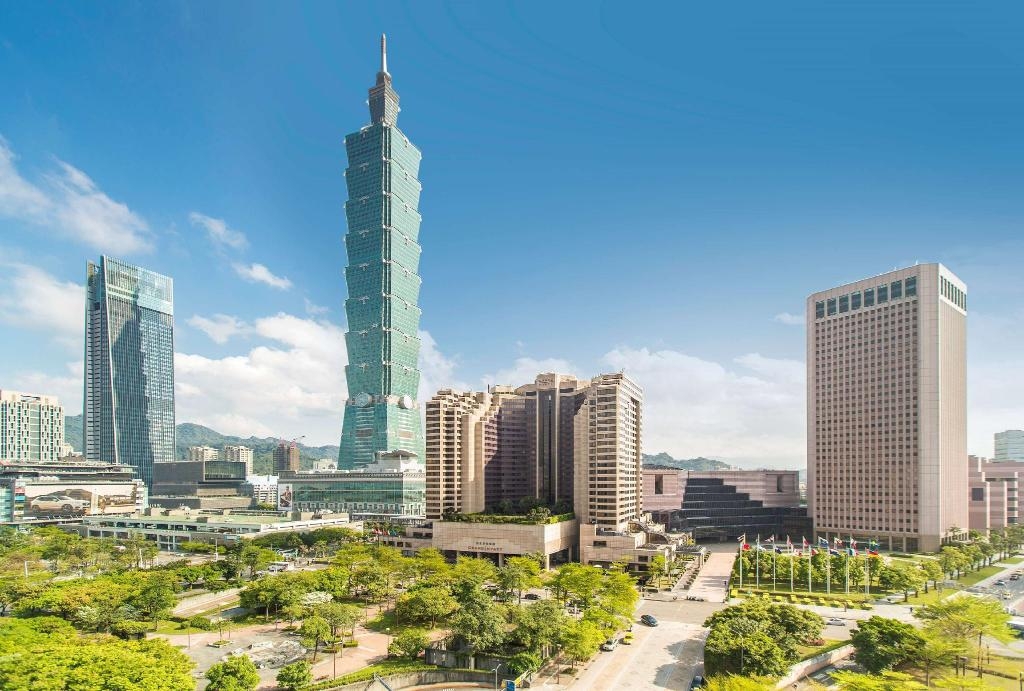 |
| Photo: Agoda |
Taipei, the capital of Taiwan, is at number three in the list.
The Bloomberg reports states that the findings highlight that the rich aren't immune to inflation, which has reached 8.6 per cent in the United States and 9 per cent in the UK.
According to the Julius Baer report, which was released Wednesday (June 15), "While the financial situation of many high-net-worth individuals has actually improved over the last year, the concurrent increase in the basket of goods and services that make up our lifestyle index means the 'money illusion' of previous years still lingers."
Still, "our survey reveals a mildly optimistic post-pandemic picture," it said. "The wealthy are spending normally again."
Although the cost of living is much lower in rural and southern Taiwan, most foreign nationals moving to the country settle in Taipei. A comparatively expensive city, the 2021 Mercer Cost of Living Survey ranked Taipei at 22nd out of 209 other popular expat cities, although this is still far below other regional hubs such as Hong Kong, Tokyo, Beijing or Singapore.
In general, if earning an expat salary, one can enjoy a higher standard of living than back home, even if the actual wage, before adjusting for purchasing power, is lower. That said, many foreigners soon discover that they can generally afford more with less money. Even as a local hire, new arrivals will probably be paid a 'foreigner' rather than a 'local' wage, especially if bilingual, and certainly if speaking English or another foreign language is considered a needed skill for the position.
That said, Taipei has as much of a consumer-orientated culture as many large Western or Asian cities, and expat families will need to decide how much of their monthly income they are prepared to spend to maintain the lifestyle that they were living in their home countries. Western clothing and foodstuffs are generally much more expensive than local options.
Cost of accommodation in Taipei
Although higher than elsewhere in Taiwan, housing in Taipei is generally affordable as renting and living centrally is not as expensive as it might be in Western cities.
On the other hand, it's prohibitively expensive to buy property in Taipei, as real estate costs are similar to those in more expensive countries.
Cost of food and eating out in Taipei
Expats will be astonished by the depth and breadth of the options for eating out in Taipei. These range from food stalls making cheap, tasty and quick meals or snacks to restaurants offering sit-down dinners of several courses.
One downside is that it can cost as much to cook at home as it does to eat out, especially if cooking Western food. For those who prefer their own cooking or like to have total control of ingredients and the cooking process, this can be frustrating.
Drinking Western alcohol can cost more in Taipei than in the West, but going out in Taipei is still affordable. Even Taipei’s fanciest bars are affordable, and most local and expat-friendly places have wallet-friendly prices as well.
Cost of goods in Taipei
Goods tend to be cheaper in Taiwan than they are in the US or UK. With all the street stalls selling accessories, and the affordability of decorating, furnishings tend to be cheaper than in other countries.
Although many goods in Taipei are cheap, they are often poorly made. This is especially true when it comes to textiles and some electronics brands. Sheets, pillows, blankets, towels and curtains tend to be of lesser quality, and many are made of synthetic, even plastic-like fabrics.
Despite the abundance of inexpensive goods, imported luxury brands are costly due to high import duties.
Cost of living in Taiwan chart
Prices may vary depending on product and service provider. The list below shows average prices for Taipei in January 2022.
| Accommodation (monthly rent in a good area) | |
| One-bedroom apartment in the city centre | NT 15,000 - 30,000 |
| One-bedroom apartment outside of the city centre | NT 8,000 - 20,000 |
| Three-bedroom apartment in the city centre | NT 32,000 - 80,000 |
| Three-bedroom apartment outside of the city centre | NT 20,000 - 50,000 |
| Shopping | |
| Eggs (dozen) | NT 78.90 |
| Milk (1 litre) | NT 92.35 |
| Rice (1kg) | NT 95.90 |
| Loaf of white bread | NT 55.20 |
| Chicken breasts (1kg) | NT 273.40 |
| Pack of cigarettes (Marlboro) | NT 125 |
| Eating out | |
| Big Mac Meal | NT 150 |
| Coca-Cola (330ml) | NT 29.50 |
| Cappuccino | NT 97.70 |
| Local beer (500ml) | NT 60 |
| Three-course meal for two at mid-range restaurant | NT 900 |
| Utilities | |
| Mobile-to-mobile call rate (per minute) | NT 5.15 |
| Internet (uncapped ADSL or cable average per month) | NT 780 |
| Basic utilities (per month for small apartment) | NT 2,474 |
| Transportation | |
| Taxi rate (per kilometre) | NT 25 |
| Bus/train fare in the city centre | NT 25 |
| Petrol/gasoline (per litre) | NT 29.50 |
4. Hong Kong
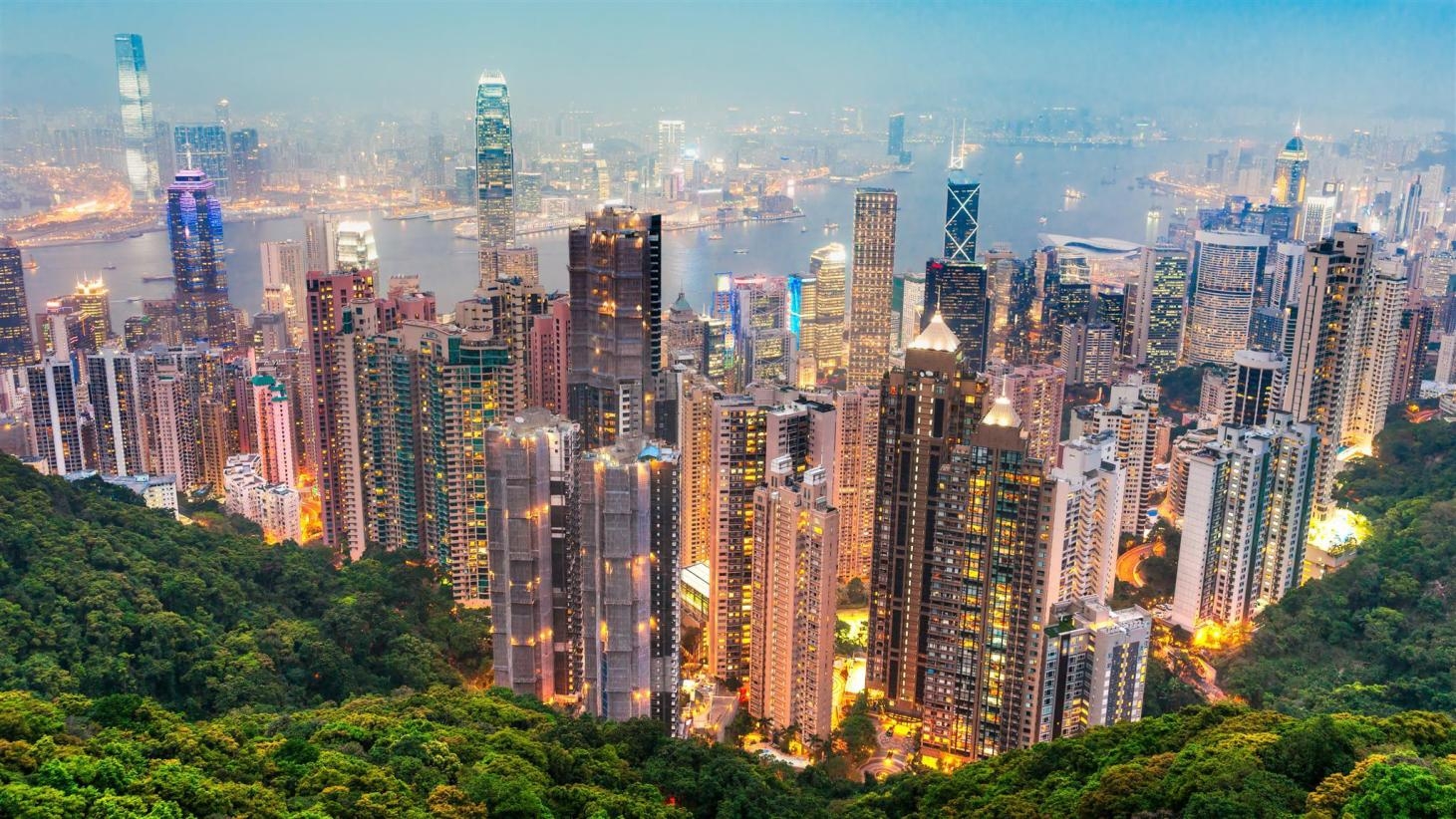 |
| Photo: Agoda |
Hong Kong is at fourth spot. In the report, it has been mentioned that the undercurrent to Julius Baer Group Ltd.'s 2022 global wealth and lifestyle report is global divergence in price growth and monetary policy.
The rankings are done after analyzing the cost of residential property, cars, airfare, business school and other luxuries.
Hong Kong is the 10th most expensive place on the planet to live. Rent pushes up cost of living significantly - but if you choose your new home wisely, you can still live an excellent life on an average salary.
| Living expenses in Hong Kong (excluding rent) | Hong Kong average cost |
|---|---|
| Single person, per month | HK$6,865 |
| Single person, per year | HK$82,380 |
| University student, per month | HK$5,298 |
| 4 person family, per month | HK$24,472 |
| 4 person family, per year | HK$293,664 |
What are the average salaries for Hong Kong?
Salary levels in Hong Kong are in general very good. Many roles offer top tier average salaries, and Hong Kong is also home to the best paid attorneys, QA engineers, product managers, hardware engineers and industrial designers on the planet.
| Salary averages for Hong Kong | Average annual salary |
|---|---|
| Cashier | HK$144,462 |
| Copywriter | HK$645,375 |
| Financial analyst | HK$806,057 |
| Graphic designer | HK$334,529 |
| Mobile developer | HK$662,620 |
| Product manager | HK$1,056,037 |
| Receptionist | HK$637,371 |
| Software engineer | HK$332,151 |
| Teacher | HK$465,920 |
| Web developer | HK$331,332 |
How expensive is housing and accommodation in Hong Kong?
The amount you pay in rent is a big driver of your overall cost of living. Central areas of Hong Kong have some of the most expensive rents in the world, with apartments typically very small. If you’re on a budget, consider life in the areas outside of the city centre.
| Renting in Hong Kong | Average monthly cost |
|---|---|
| One bedroom apartment (city centre) | HK$16,551 |
| One bedroom apartment (outside of city centre) | HK$11,006 |
| Three bedroom family home (city centre) | HK$39,800 |
| Three bedroom family home (outside of city centre) | HK$23,426 |
| Internet | HK$205 |
| Utilities (gas, electric and water for a 85m2 apartment) | HK$1,371 |
What about healthcare and dental costs in Hong Kong?
The health infrastructure in Hong Kong is extremely good. Hong Kong citizens and permanent legal residents can access subsidised healthcare in the public system. However, the process can be slow going - so many people choose to purchase private healthcare instead.
| Healthcare service | Average cost to you |
|---|---|
| Family doctor check-up | HK$367 |
| Cold medicine for 6 days | HK$65 |
| Antibiotic prescription | HK$80 |
How much is travel and transportation in Hong Kong?
Hong Kong is densely populated and exceptionally difficult to navigate by car. Taking public transportation is the best option for most people living in the centre. It's good to know that a monthly pass here will set you back about half the amount it'll cost you in New York or Sydney - and only one third the price of a monthly ticket for London.
| Transportation and vehicle prices for Hong Kong | Average cost |
|---|---|
| Gasoline (1 litre / 0.25 gallon) | HK$14.80 |
| Monthly bus/transport pass | HK$460 |
| Bus ticket, single use | HK$10 |
| Taxi tariff, 8km/5mile journey | HK$58 |
| Toyota Corolla, new | HK$217,343 |
| VW Golf, new | HK$213,000 |
How much does education cost?
Hong Kong has a large number of strong universities, and is rated as the 15th best city in the world for students. There are particular strengths among the courses offered - for example, Hong Kong University is first in the world for dentistry.
| School | Average cost |
|---|---|
| Preschool / kindergarten (monthly fee) | HK$5,336 |
| Private school for lower grades (annual) | HK$95,231 |
| University tuition (University of Hong Kong) | HK$146,000 for non local students (HK$42,100 for local students) |
| University tuition (City University of Hong Kong) | HK$120,000 annually |
Wherever you choose to live in Hong Kong, you're going to find you have a pretty energising new home. There's the amazing culture and cuisine, and a vibrant mix of east and west you don't really find anywhere else. It's a hundred mile per hour sort of place, making Hong Kong a fantastic expat destination for a permanent move, or just to spend a year or two exploring somewhere new.
5. Singapore
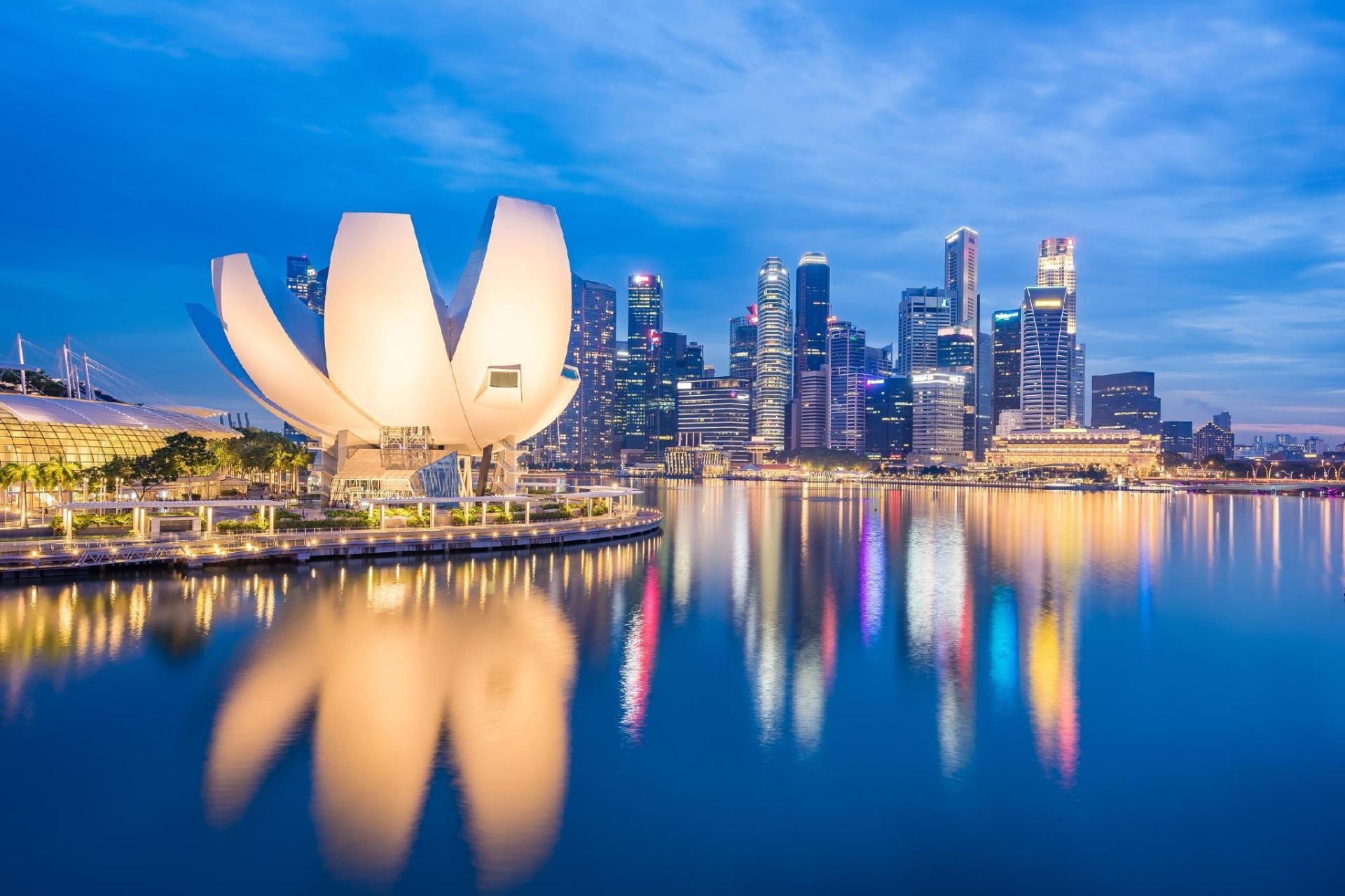 |
| Photo: Agoda |
In the list of world's most expensive cities to live for the rich people, Singapore is number five.
The Bloomberg report states that the cost of tech items like laptops and smartphones globally surged the most, 41%. Such a hike is due to work-from-home culture and a global chip shortage.
One of the major factors determining how expensive life in Singapore will be, is where you choose to live. Rental prices are fairly high, but move outside of the city center and you can rent in Singapore for much less.
| Living expenses in Singapore (excluding rent) | Average cost |
|---|---|
| Single person, per month | 1,336 SGD |
| Single person, per year | 16,032 SGD |
| University student, per year | 6,000 SGD |
| 4 person family, per month | 4,865 SGD |
| 4 person family, per year | 58,380 SGD |
What’s the average salary in Singapore?
The salaries in Singapore are fairly high in general. When it comes to expat earnings, it’s doing very well according to certain surveys. In fact, one by ECA International shows Singapore to be the fifth in the world when it comes to expat salaries.
Also, one of the great things about living here is that the state is actively trying to raise the income of lower-wage workers. Various plans and strategies are being made in order to get closer to a more equal society.
If you’re interested in knowing more about salary averages, read on. Check out what you could earn in Singapore:
| Salary averages for Singapore¹⁰ | Average salary |
|---|---|
| Cashier | 19,664 SGD |
| Copywriter | 49,412 SGD |
| Financial analyst | 78,767 SGD |
| Graphic designer | 37,077 SGD |
| Mobile developer | 73,492 SGD |
| Product manager | 77,996 SGD |
| Receptionist | 25,535 SGD |
| Software engineer | 66,804 SGD |
| Teacher | 52,164 SGD |
| Web developer | 51,739 SGD |
How expensive is housing and accommodation in Singapore?
As of 2020, over 80% of people in Singapore are homeowners, which is a very high number.
This is due to a well-developed public housing system made possible by the Housing and Development Board (HDB). Although the state apartments are eligible for a 99-year lease, Singapore citizens can also buy them.
Even though you’re a foreigner, it's still possible to find a good rental in Singapore. If you have an employment pass, a student pass or certain other documents, you have the same rights as Singapore natives.¹²
Your landlord will inform you of this, but keep in mind that you can’t rent a property for less than 3 months.
This year, the rental costs have slightly dropped. Still, Singapore is fairly stable when it comes to rent prices.
Here’s what you can expect:
| Renting in Singapore | Average monthly cost |
|---|---|
| One bedroom flat/apartment (city centre) | 2,861 SGD |
| One bedroom flat/apartment (outside of city centre) | 1,913 SGD |
| Three bedroom apartment (city centre) | 5,466 SGD |
| Three bedroom apartment (outside of city centre) | 3,178 SGD |
| Internet | 45 SGD |
| Utilities (gas, electric and water for a 85m2 apartment) | 160 SGD |
What about healthcare and dental costs in Singapore?
The healthcare system in Singapore is very strong, in both the state and private sector. The public sector is financed through the Medisave contributions that permanent residents pay each month. So, if you’re a permanent resident, most of your medical costs are covered.
Since non-resident expats don’t fall into this category, their public healthcare bills can be quite big. That’s why most of them have private health insurance. The private sector will cost almost the same as the public, but it ensures less waiting time and better services.
The prices can vary, so it’s best to check before choosing a doctor. Here’s an overview of some basic prices when it comes to Singapore healthcare:
| Healthcare service | Average cost |
|---|---|
| Short visit to private doctor (15 minutes) | 58 SGD |
| Cold medicine for 6 days | 11 SGD |
| 1 box of antibiotics (12 doses) | 13 SGD |
How much is travel and transport in Singapore?
One of the best options when getting around Singapore is using its Mass Rapid Transit (MRT) subway system. Not only is it fast, but it’s also cheap and clean. If you get the rechargeable EZ-Link card, you can save even more money.¹⁷
You can opt for taking the bus or taxi as well, both inexpensive. Driving is more expensive, since parking can cost a lot. However, UK expats will find driving here easy, since people in Singapore also drive on the left.¹⁷
Check out the prices you can expect when it comes to travel and transport in Singapore:
| Transportation and vehicle prices for Singapore² | Average cost |
|---|---|
| Gasoline (1 litre / 0.25 gallon) | 2.26 SGD |
| Monthly bus/transport pass | 120 SGD |
| Bus ticket, single use | 1.83 SGD |
| Taxi start (normal tariff) | 3.51 SGD |
| Taxi tariff 1km (normal tariff) | 0.9 SGD |
| Toyota Corolla, new | 108,017 SGD |
| VW Golf, new | 120,000 SGD |
How much does education cost in Singapore?
Private education in Singapore is highly valued, and comes at a cost. A year’s high school tuition in UWC South East Asia, for example, could run up to nearly 50,000 SGD¹⁸.
Depending on the field and level of studies, the tuition fees at the National University of Singapore go up to around 160,000 SGD. Also, the fees can be different for international students.¹⁹
Unsurprisingly, standards are high - the Singaporean education system is regularly ranked as one of the best in the world.
| School | Average cost |
|---|---|
| Preschool / kindergarten (monthly fee) | 160-320 SGD |
| Independent schools (monthly fee) | 300-2,500 SGD |
| National University of Singapore tuition (new international students, undergraduate, business, one year) | 20,550-32,250 SGD |
| Singapore Management University tuition (new international students, bachelor programme, one year) | 24,500-47,320 SGD |
Singapore is an exciting place to be, whether you’re considering a permanent move, or just looking to spend a year or two exploring somewhere new. The cost of living may be a little high, but the experiences you can get here are truly memorable.
6. Monaco
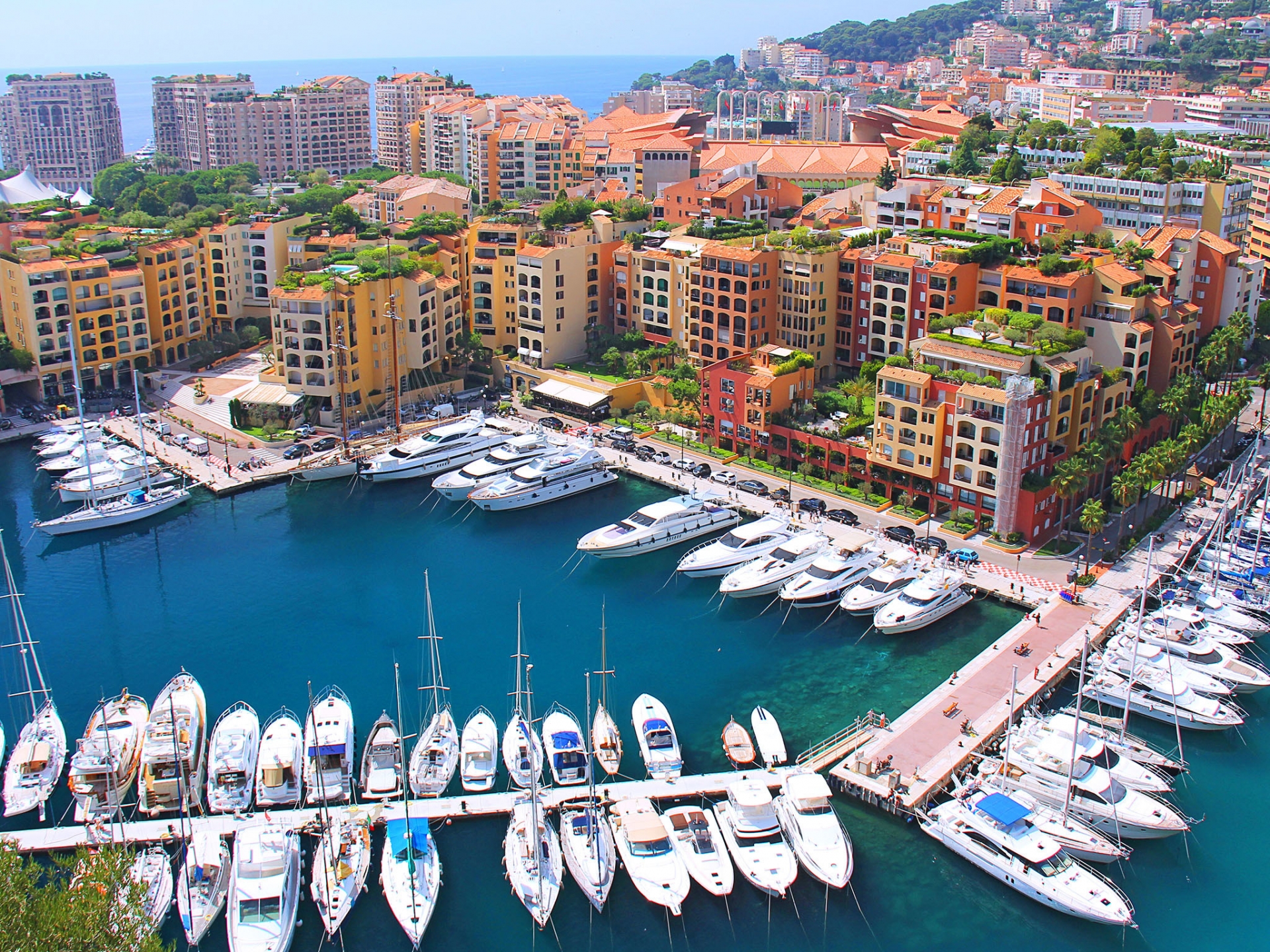 |
| Photo: Time Out |
This European city is at the sixth spot. In the Bloomberg report, the findings have been curated after analysing prices of about 20 goods and services individuals with bankable household assets of $1 million or more typically buy in 24 cities across regions.
THE COST OF LIVING
It is above average. The Principality of Monaco is considered one of the most expensive countries in Europe for living. However, the main source of expenses is real estate. Regarding products, the prices here are comparable to those in France and the Côte d'Azur. Due to the lack of appropriate tax, the cost of food in supermarkets is affordable.
Regarding clothes, you will find boutiques of all famous brands in Monaco. As well as the mass market. For example, Zara and H & M are popular with locals and visitors. A mixture of styles is not considered bad manners.
As for the cost of services - they are above average. Internet, communications, utilities and other services - everything is expensive. For example, in the communication and the Internet market "Monaco Telecom" is a monopolist and the average monthly rate of a communication and an intern for the telephone will cost 120 euros.
With regard to a comfortable life, and general feelings of self-sufficiency, living in the Principality of Monaco will be comfortable with an annual income of 500 or more thousand euros.
CITIZENSHIP
Only 15% of the population have the principality of Monaco passport. The rest may apply for a residence permit, a limited visa. Obtaining citizenship in the Principality is almost impossible: you need to be an outstanding personality,an athlete who is known for his achievements , artists, buy the most expensive apartments in Monaco or be a good acquaintance of the Prince.
No other way. But even with a residence permit people in the Principality live well and enjoy all the privileges of living in one of the richest regions of Europe.
BANKING & PERSONAL FINANCE
Living here without a bank account is unreal. To buy real estate, to rent apartments in Monaco, to buy sim-card, rent a car, etc. - all these things are possible only through a bank account. And that's what you need to know about him:
- to open a personal account you must put at least 100 thousand euros on deposit;
- there is no conventional banks, and all transactions with the account are conducted through a personal banker: through it you decide virtually all transactions with the account ;
- any receipt of funds should be documented to assure: salary, sale of personal property, winning the lottery - everything should be transparent and clearly described in the paper;
- banks have mobile applications, and they serve only to check your balance, view the latest transactions on the account;
- debiting and crediting funds into the account are hold with a delay of 1-7 days.
REAL ESTATE AND RENTAL
The price per square meter starts from 10,000 euros and increases depending on the prestige of the area. Not surprisingly, the most expensive apartments in the world are sold in Monaco.
Renting an apartment costs an average of 3,500 euros per month. Add to this amount utilities bills of 400-700 euros and get the price of housing for rent in the amount of the average salary.
Renting of apartments is possible only through an agency. In this case, you have to pay for services of an agent and a deposit. You may forget about repairing or making any changes to the layout and design of the apartment. You need to negotiate everything with the agent (you are unlikely to see the owner ) and it is often refused.
Because of expensive real estate, those who work in Monaco, prefer to live on the French Riviera (the Cote d'Azur) . Here you can rent apartments which are cheaper and more comfortably.
If you are planning to buy real estate in Monaco - it is useless to look for it cheaper than a million euros. This is the price of a small apartment with an outdated and unsuccessful repair location. More or less decent housing starts from 2 million euros and ends somewhere at around 390 million for a penthouse in the Tour Odeon.
SALARY AND TAXES
The average salary in the principality for qualified employees is from 7000 euros. Serviced for personnel - from 4 thousand euro.
With regard to taxes, many of the usual ones are absent here. For example, the income tax, the real estate tax, the approach tax, inheritance tax, etc. This list makes the country particularly attractive for investors and businessmen.
TRANSPORT
The most popular vehicles in Monaco is a bicycle. The highlands, small distances between districts , narrow streets and few parking make the principality not the most attractive region for motorists. But there are cars here. And how else yoy might travel all over the Côte d'Azur, spend weekends in France and Italy.
As for public transport - it is here. Buses run frequently, the only taxi service no more than 12 cars, and is the most popular service is karshering.
7. Zurich
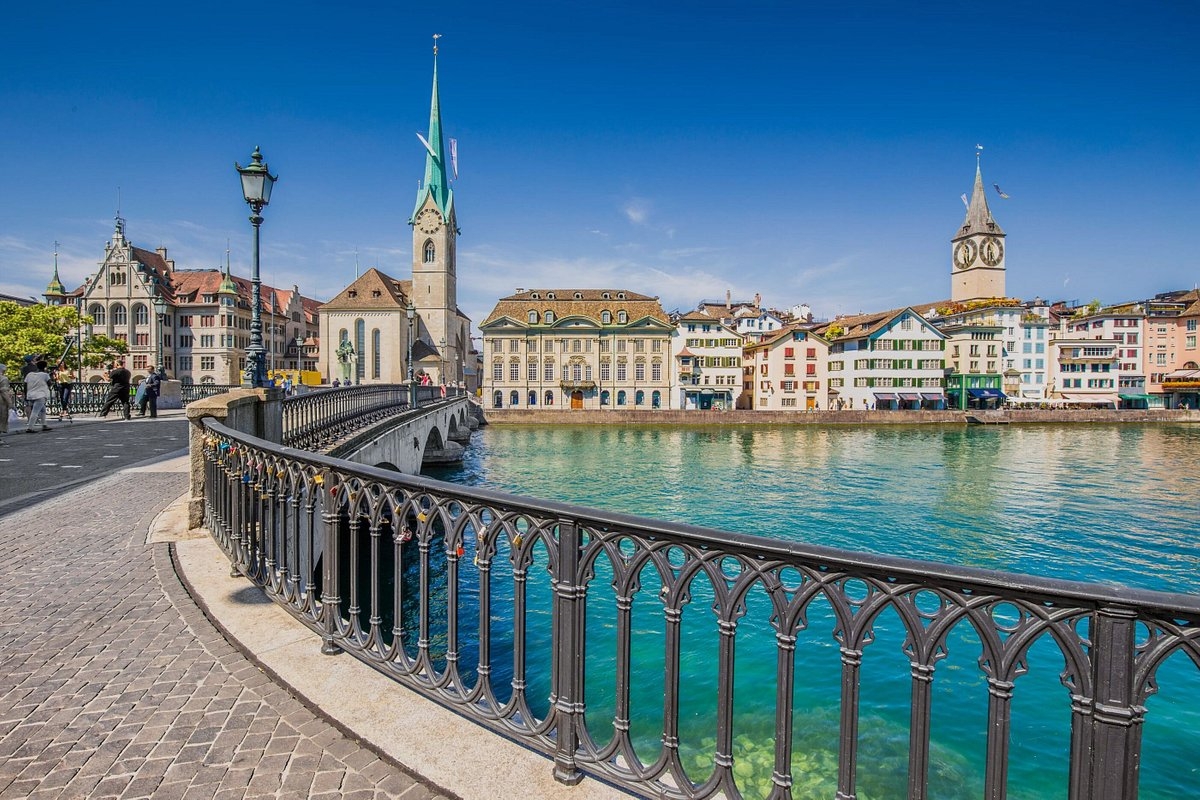 |
| Photo: TripAdvisor |
Zurich, a popular tourist destination in Switzerland is in the seventh spot. The report noted that the data was gathered in two rounds between November and April.
The cost of living in Switzerland is very high. You can gain an overview of the costs you are likely to incur by drawing up a personal budget. Your actual living costs will depend on your living situation, the costs of health insurance and your personal lifestyle.
Monthly expenses for a single person
| Fixed costs | Amount in CHF |
|---|---|
| Accommodation (room CHF 400-1,000, flat CHF 800-1,600) | 800 |
| Health insurance | 300 |
| Household contents/personal liability insurance | 30 |
| Telephone connection/Internet/TV and radio licence fees | 120 |
| Energy (electricity/gas) | 40 |
| Public transport | 100 |
| Food, household items, personal expenses | Amount in CHF |
| Food | 400 |
| Clothes, shoes, hairdressing, mobile phone, leisure activities | 250 |
| Washing, cleaning and personal hygiene items, waste disposal | 30 |
| Provisions | Amount in CHF |
| Medical treatment (dentist, doctor, optician, medication), gifts, repairs, small purchases | 180 |
| Total amount in CHF | 2,250 |
Tax
As a foreign employee, you are subject to withholding tax. This tax will be deducted directly from your salary.
Additional one-off costs
| Rent deposit | Amount in CHF |
|---|---|
| As a tenant, you usually have to pay a rent deposit. The deposit amount ranges from one month’s rent to a maximum of three months’ rent. | 800 - 2,500 |
| Doctorate | Amount in CHF |
| Registration, admission, tuition fees (see also Doctorate). | 1,350 - 1,470 |
8. Tokyo
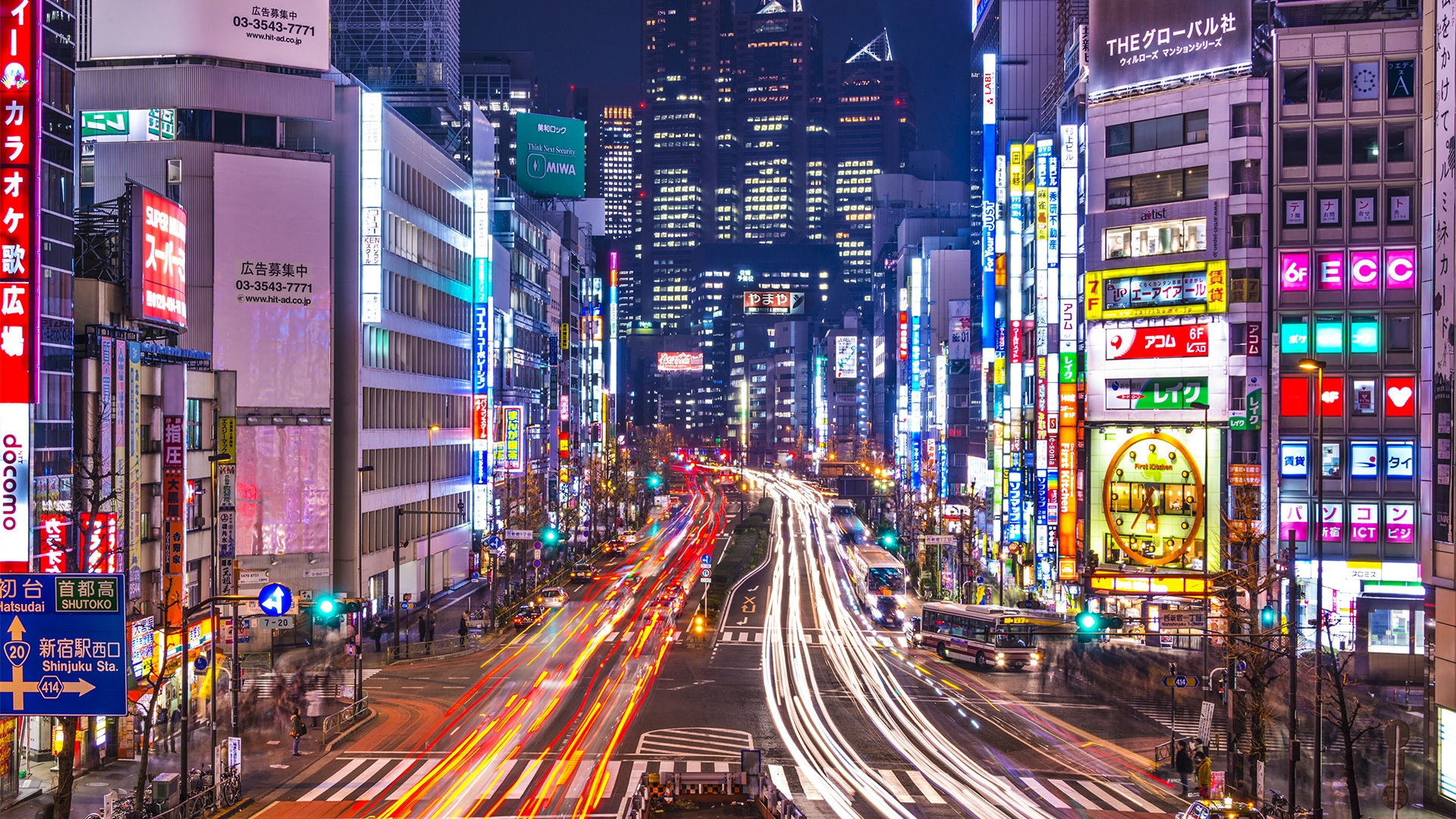 |
| Photo: Getty Images |
Tokyo, the Japanese capital is number eight on the list of the world's most expensive cities to live in for the rich.
The busy capital city is a mix of the ultramodern and the traditional form of lifestyle.
Monthly Housing and Utilities
There are many things to take into account when looking at the prices month to month. With rent being your number one priority, falling short behind are utilities, groceries, transportation and washing clothes.
For monthly rent in an apartment that is 900 sq. feet in the heart of Tokyo, it is over ¥280,000, which equates for $2,300 USD a month. But this isn’t in a cheap area. This is if you want to live in the middle of the city where all the action happens. But with an expensive apartment like this per month, surprisingly, utilities aren’t as high. For two people to live in said apartment, it will be around $111.00 USD in utilities per month. That comes to over ¥13,000. You’re paying mostly for the location.
Luxuries
For Internet, it is around 3600 Yen a month, which equates to $22 USD. For that great 40” flat screen, that will run you about $600 USD to purchase, which comes to around 72,000 Yen.
To buy your apartment’s first microwave, it will cost you around 24,000 Yen or $210 USD. For two tickets to that awesome new action movie you’ve been wanting to see, it will be about 3500 Yen or $30 USD. You can watch a movie from home on Netflix to save cash but you may need to unblock it due to geographical restrictions.
But if you’re looking for a beverage, the price will vary on what you get and where.
- A beer in your neighborhood: ¥618 or $5.23
- A cocktail at a club in the city: ¥1,300 or $11.00
- Coffee, latte or cappuccino in the city: ¥480 or $4.00
Transportation
For gas, it will cost you about 628 Yen for a gallon of gas, which is the equivalent of $5.30. But for a monthly, unlimited bus pass in Tokyo, you’ll pay around 12,000 Yen or $102 USD. With the public transportation system going to so many places within the area, the bus pass is a steal if you don’t have enough money for a car monthly!
9. Sydney
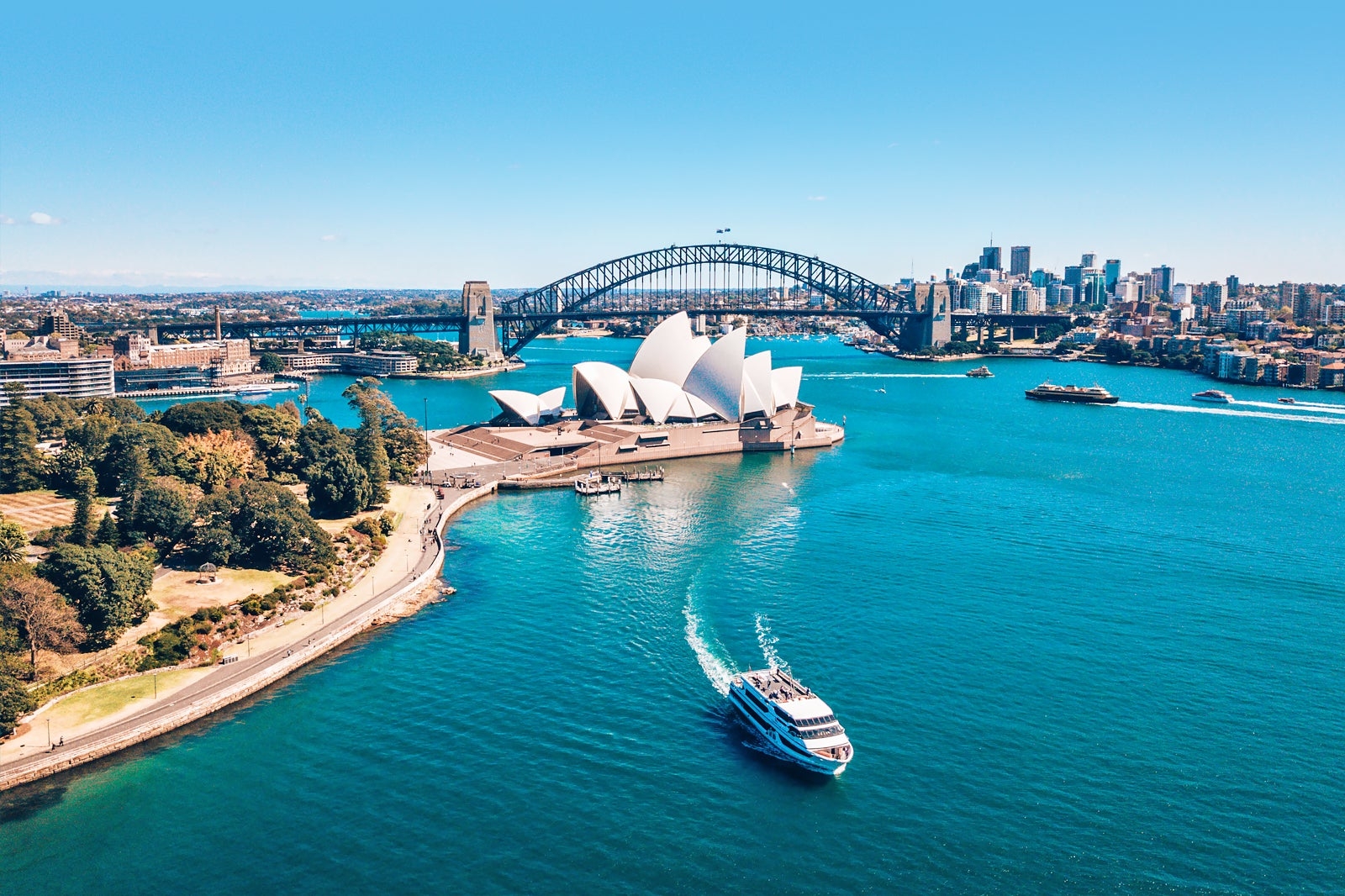 |
| Photo: Getty Images |
Australia's Sydney is at number nine.
The report has mentioned that the Russian capital Moscow was removed from the list.
Monthly rent for a 1-bedroom inner-city Sydney apartment could cost an average of $2558.71
| Rent for 1-bedroom inner-city Sydney apartment | $2,576.66 per month |
| Electricity/Gas | $190.19 per month |
| Internet (60Mbps or more, unlimited data, Cable/ADSL) | $72.52 per month |
| Mobile phone data (one-minute local prepaid mobile tariff call with no plan or discount) | $0.68 per month |
| Groceries/Food and drink | $560.00 - $600.00 per month |
| Transport Public transport (trains, light rail, buses and ferries) | $217.39 for a monthly ticket |
| Fuel | $1.73 per litre (average) |
| Buying a new car (equivalent of a Volkswagen Golf 1.4 90KW Trendline) | $30,000.00 |
| Dining out for dinner | Inexpensive restaurant (2 meals) $40.00 Mid-range restaurant (3 course meal for 2) $100.00 |
Average salary in Sydney
You can expect due to the expense of living in Sydney that average net salaries (before tax) are a bit higher than in some of the other cities. If you are moving to Sydney for a full-time job your salary may fall somewhere around the average net salary of $6,182.35 per month.
Housing & Rent
The average rent in Sydney for a house is $540 per week and $495 per week for a unit.
Inner city rents are much higher than the outer suburbs, with the exception of the eastern suburbs. If you are looking to rent in the inner city you can expect to pay around:
| Living arrangement | Average weekly rent |
| 1 bedroom inner city apartment | $2,576.66 |
| 3 bedroom inner city apartment | $4,895.16 |
Outer suburbs become considerably cheaper, particularly the more south and west of Sydney city you go. However, you may need to consider transport and accessibility if you need to work or study in the CBD. Depending on your personal circumstances and the area you move, you can expect to pay:
| Living arrangement | Average weekly rent |
| 1 bedroom apartment outside the city centre | $1,854.70 |
| 3 bedroom apartment outside the city centre | $3,108.82 |
Examples include:
- Baulkham Hills and Hawkesbury - $550 per week
- Blacktown - $450 per week
- Central Coast - $420 per week
If you are more ambitious and wish to put some permanency to your move, you can buy an apartment in the city centre for around $15,968.65 (per square metre) or outside the city centre for $9,464.94 (per square metre).
Utilities
The core element of comfortable living is the necessity for heating and power and in Sydney the average cost of electricity is around $190.19 per month.
In this day and age, mobile phones and the internet is also considered a necessity of communication. In Sydney an internet plan (for 60Mbps or more, unlimited data, Cable/ADSL) can cost on average $72.52/month and mobile phone data on a local prepaid call with no plan or discount will cost about $0.68 for less than a minute.
Transport
Public Transport relies on the Opal Card which is used to travel on trains, light rail, buses, and ferries. On Sunday public transport is charged at a flat rate of $2.80 no matter how far you travel.
The average cost of a one-way ticket on local transport is $4.50 and the regular price of a monthly pass is $217.39. If you drive a lot the average cost of fuel is $1.73 per litre, if you want to buy a new car when you get to Sydney you are looking at around $30,000 (based on a Volkswagen Golf 1.4 90KW Trendline or equivalent).
Restaurants
When eating out, you can expect to spend on average per meal (depending on your tastes and the venue):
- Inexpensive restaurant (2 meals) - $40
- Mid-range restaurant (3-course meal for 2 people) - $100
- McDonalds value meal - $12
The costs of dining out in Sydney vary depending on what you like and where you go
If you are out for a drink, average beverage costs are:
Coke/Pepsi 0.33L bottle - $3.41
Water 0.33L bottle - $2.97
Cappuccino regular - $4.27
Domestic beer
- Restaurant 0.5L draught - $8
- Market 0.5L bottle - $5.40
Imported beer
- Restaurant 0.33L bottle - $20
- Market 0.33L bottle - $6.11
Bottle of Wine (Mid-range from market) - $15.25
10. Paris
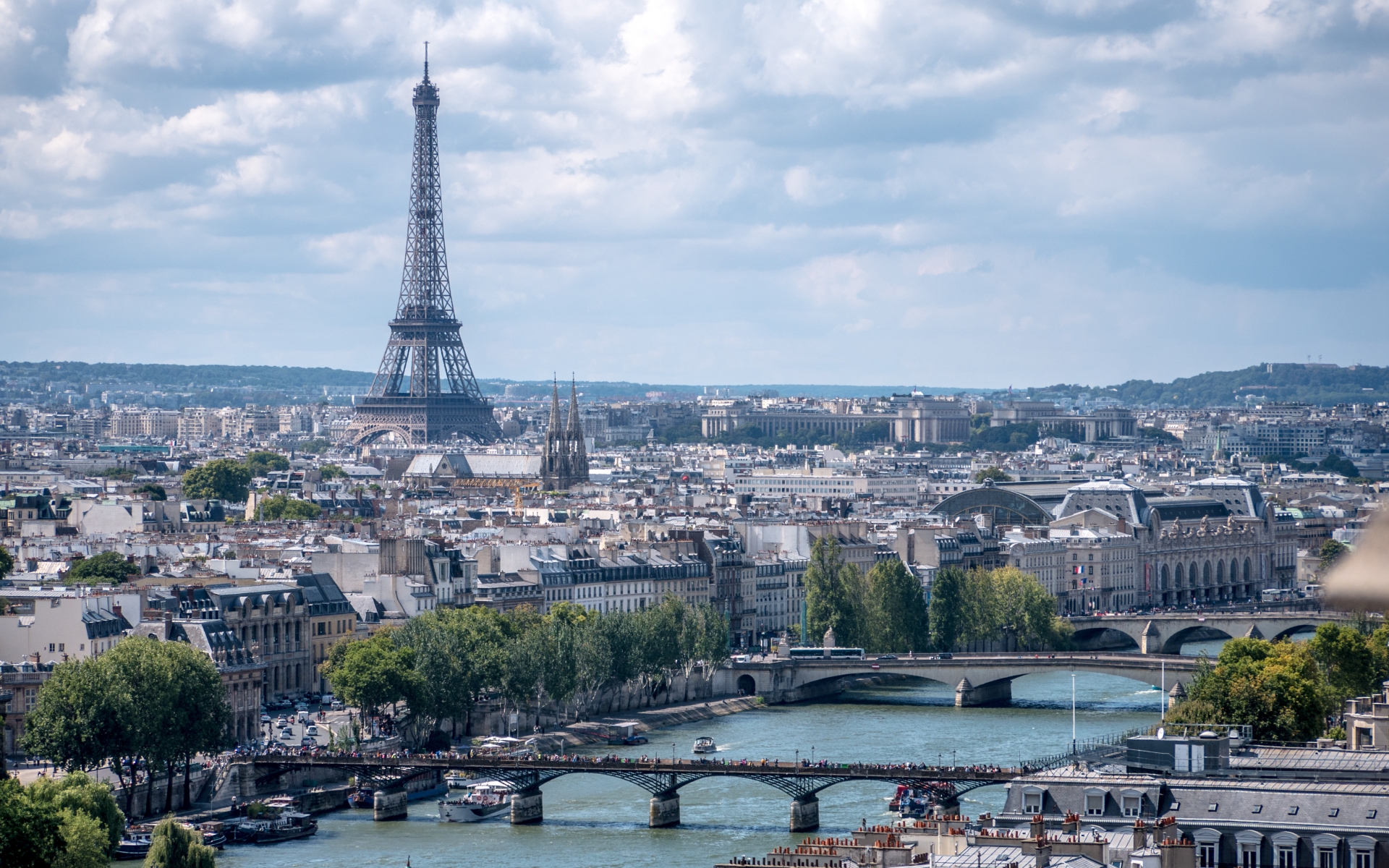 |
| Photo: Wikipedia |
The French capital is at the 10th spot. In the report, Nicolas de Skowronski, the head of wealth management solutions at Bank Julius Baer, was quoted as saying: "Ongoing global uncertainty, prompted by the pandemic, and sustained by rising inflation and increased geopolitical tension, has only sharpened the need for investors to protect their purchasing power and, in the long term, actively plan to preserve their wealth."
1. Housing Costs for Expats in Paris
The average cost of housing is comparable to most major cities throughout the world.
Depending on where in the city you live and if you choose to share rent by having roommates will most likely dictate how much your rent will be.
- Renting a 3-bedroom apartment: $4,000/month
- Renting a 1-bedroom apartment: $1,600/month
- Renting a furnished two-bedroom apartment: $3,400
- Renting an unfurnished two-bedroom apartment: $2,900
2. Entertainment & Social Life in Paris
We all know how expensive going to bars, restaurants, and events can be, especially in a big city. Paris is no exception. Expect to pay a little more for specialty drinks and gourmet food, but you can definitely find a nightlife scene that fits your budget.
- 1 ticket to the movies: $27
- 1 cocktail in a downtown club: $14
- 1 beer at a neighborhood pub: $7.41
- Basic dinner for two in a neighborhood pub: $57
- Cappuccino: $4
Curious to see how these prices compare to other parts of the world? Learn about the cost of living in Saudi Arabia and Italy.
3. Medical & Healthcare Costs
Healthcare in France is drastically different than healthcare in most other parts of the world.
You qualify for healthcare coverage after 3 months of living in France. On top of this, doctors are not allowed to charge upfront for medical procedures. Instead, medical bills are paid directly by the government or insurance provider.
France’s health insurance system also allows for a handful of free preventative medical examinations. The exact number of free examinations that you qualify for is determined on a case-by-case basis based on your age, gender, and risk factors.
Despite this, it’s important to check for coverage gaps and ensure that you find health insurance that will cover you in the case of an emergency.
Here are a few additional medical expenses in Paris:
- 1 week of cold medicine: $6.50
- 1 box of antibiotics: $8.50
4. Transportation Costs in Paris
Getting around Paris is a breeze thanks to the city’s amazing public transportation system. If buying a monthly train pass or paying for countless taxis doesn’t sound like it falls within your budget, try biking around (or walking)!
- A one-way ticket (local train): $2
- Monthly train pass: $93
- 2-mile taxi ride: $12
5. Groceries & Food Costs in Paris
Some things will cost more in Paris than you’re most likely used to. However, items like beer and wine are much cheaper in comparison to many other parts of the world.
1 gallon of milk: $5
1 loaf of bread: $1
A dozen eggs: $3
1 lb of Chicken: $6.37
1 apple: $1.29
1 head of lettuce: $1
Cheese (1 lb of local cheese): $9
Bottle of Red Wine: $8
An imported Beer: $3
There are challenges when moving to France and living as an expat. However, living as an expat can lead to some of the most exciting times of your life.
How to save money when renting in an expensive city
When living in a city where rent and the cost of living are high, you sometimes have to be creative to make your lifestyle more affordable.
In searching for an affordable home, it’s always best to start with a list of priorities. Think about items that you must have to live. Then make a list of items that would be a bonus to have but are not absolutely necessary.
Here are some things to consider when trying to find a budget-friendly home:
· Go small: The easiest way to save money is simply to look for a smaller apartment. Can you live in a studio instead of a one-bedroom unit? Look for a small apartment with a well-laid-out floor plan. That often makes a major difference in a smaller space.
· Think lower floor: Consider living on the third floor instead of the seventh. This will translate to lower rent in most cases.
· Skip amenities: Consider living without amenities such as a front-desk concierge, a gym or a pool. Can you live with a common laundry room instead of a washer and dryer in the unit? Often, a property that has common laundry rooms and no washer and dryer in the unit will include some, if not all, utilities in the rent. If utilities are included in the rent, this could save you about $50 to $150 monthly, depending on the size of the home.
· Bypass new: Older properties, unless they are newly renovated, will offer lower rents. In many cases, you will get more square footage than in a newer property.
· Consider ma-and-pa landlords: Individually owned rental homes can often cost less than apartments in rental communities. Rental communities are frequently on systems that can increase prices daily based on the current market. Rent increases at the end of your lease term are often higher in rental communities.
Depending on their circumstances, individual owners can usually offer their rental home for a bit under market value, and rent increases can typically be negotiated with an individual owner at the end of the lease term. Rental communities will not generally be able to negotiate on rent increases. If that’s the case, ask them to offer the same special they are offering incoming residents, such as one month of free rent.
· Avoid busy months: You can usually find the best prices on apartments during slower times of the year. April to early September is the busiest time to rent a home. October through February will typically be slower for the rental market.
· Move farther away: If you don’t work long or late hours, can you consider living a bit farther from the city center? If you can live even a few Metro stops from the center, that could save you about $200 to $300 a month on average. That adds up to a tidy sum of $2,400 to $3,600 annually.
If you can go several Metro stops farther, you may be able to find a one-bedroom unit for the price of a studio. You may be able to find a higher-quality place with more options. Parking spaces are also less expensive. Is being two blocks from the Metro necessary, or can you walk seven blocks? The farther you are, the lower the rent will be in most cases. Can you take the bus instead of the Metro? Not being within walking distance of the Metro typically equates to lower rents.
· Cut expenses: Think about your extra expenditures that are automatically charged each month. How many streaming services do you have? Can you eliminate one to save $10 or $15 monthly? Try watching only movies and shows that are free for one month and see what you save.
Call your cellphone provider every so often to see whether it can offer you a better rate. If not, see whether you can change providers for a better plan. You can try the same course of action with your Internet provider. Have you considered bringing your lunch to work instead of buying your lunch at local eateries? Consider what you spend on lunch versus what it would cost to make your own. Good-quality coffee or tea is nonnegotiable for many people. If you spend $3 to $5 once a day on workdays, that can add up to $60 to $100 monthly. If you made your favorite coffee or tea at home and brought it to work, think about how much you could save.
Many little expenditures that you might not even think about will add up quickly. Prioritize the expenses that matter to you most. Trim or eliminate the expenses that don’t matter that much. This will help make living in a city with higher rents more manageable.
It can also help you save for a vacation, your retirement or a down payment on a home sometime in the not-too-distant future.
Video: 10 most expensive cities in the world for expats
 Top 10 Cities Are Most Expensive Flexible Offices In The World Top 10 Cities Are Most Expensive Flexible Offices In The World In the context of global economic growth, the demand for office space grows – so does the rent. Flexible workspace demand increased 19 percent on ... |
 Top 10 Cities With The Most Beautiful People In The World Top 10 Cities With The Most Beautiful People In The World Cities that are home to the 'most beautiful people' on Earth have been revealed based on the number of women winning beauty pageant. Let’s find ... |
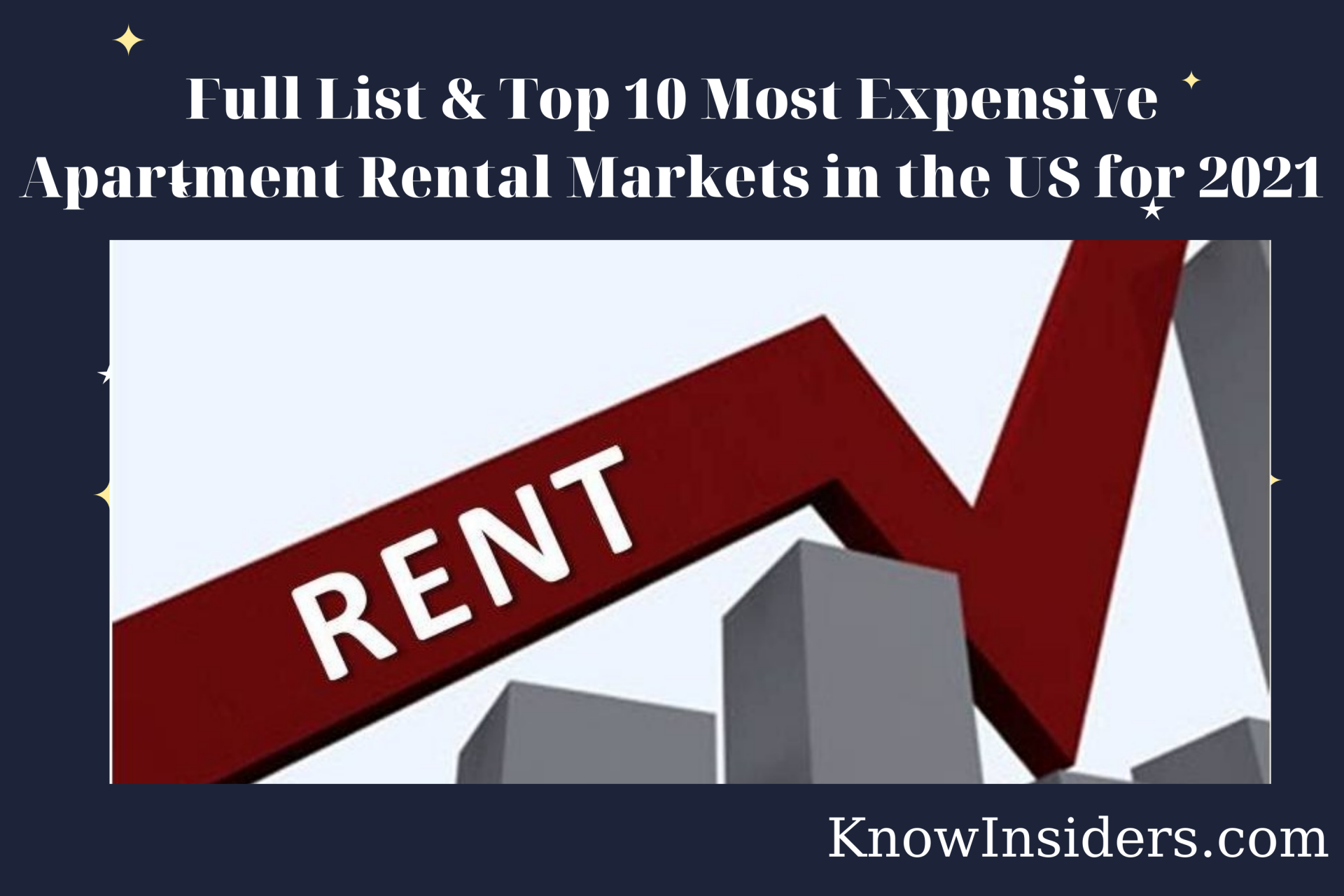 Apartment Rental Markets in America: Top 10 Most Expensive Cities and Full List Apartment Rental Markets in America: Top 10 Most Expensive Cities and Full List Check out the full list and the top 10 most expensive apartment rental markets in the US for 2021 right below! |
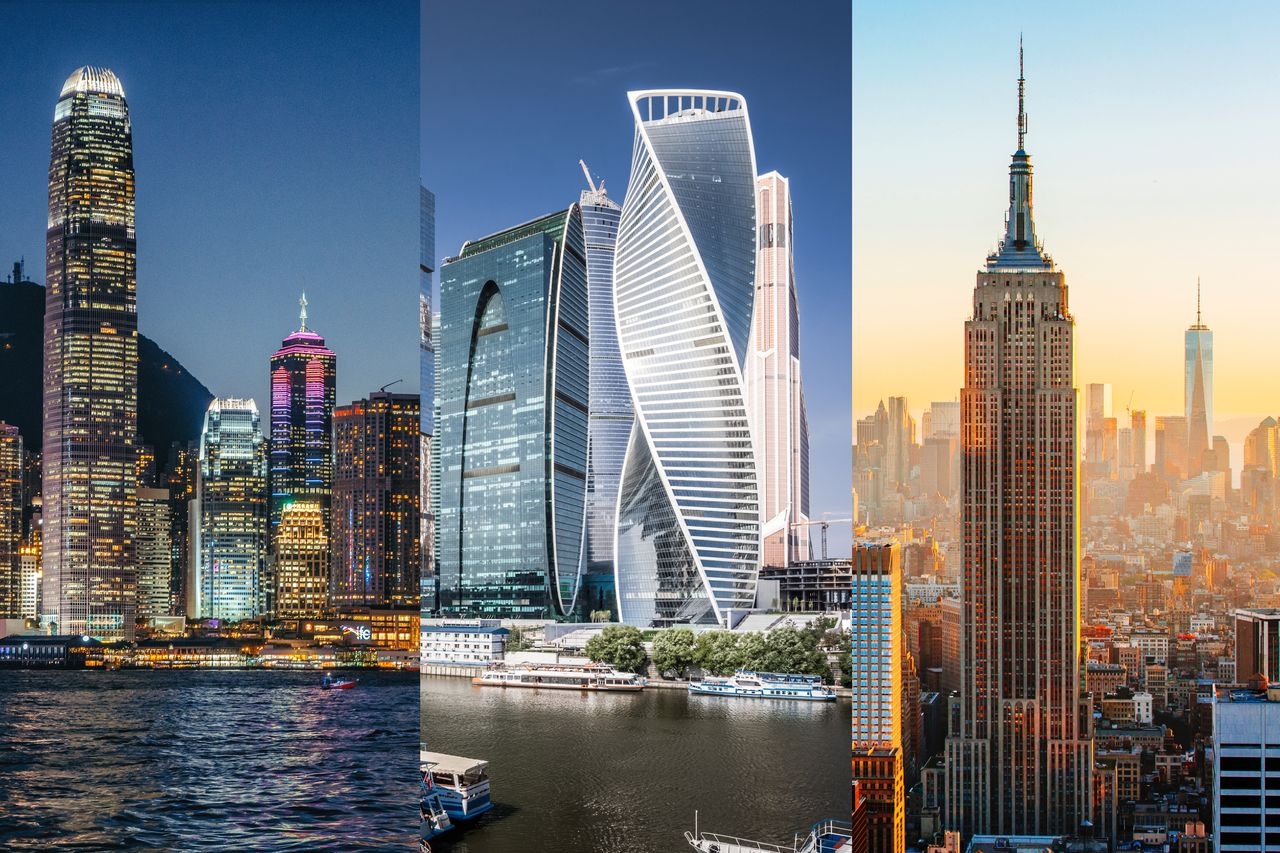 Top 10 Cities Have Most Billionaires in the World Right Now Top 10 Cities Have Most Billionaires in the World Right Now Have you ever wondered which cities have the most billionaires all over the world? If the answer is Yes, believe me, you don't want to ... |




